City Government
Technology & Partnerships May Help Deter Crime in Peachtree Corners
Published
2 years agoon
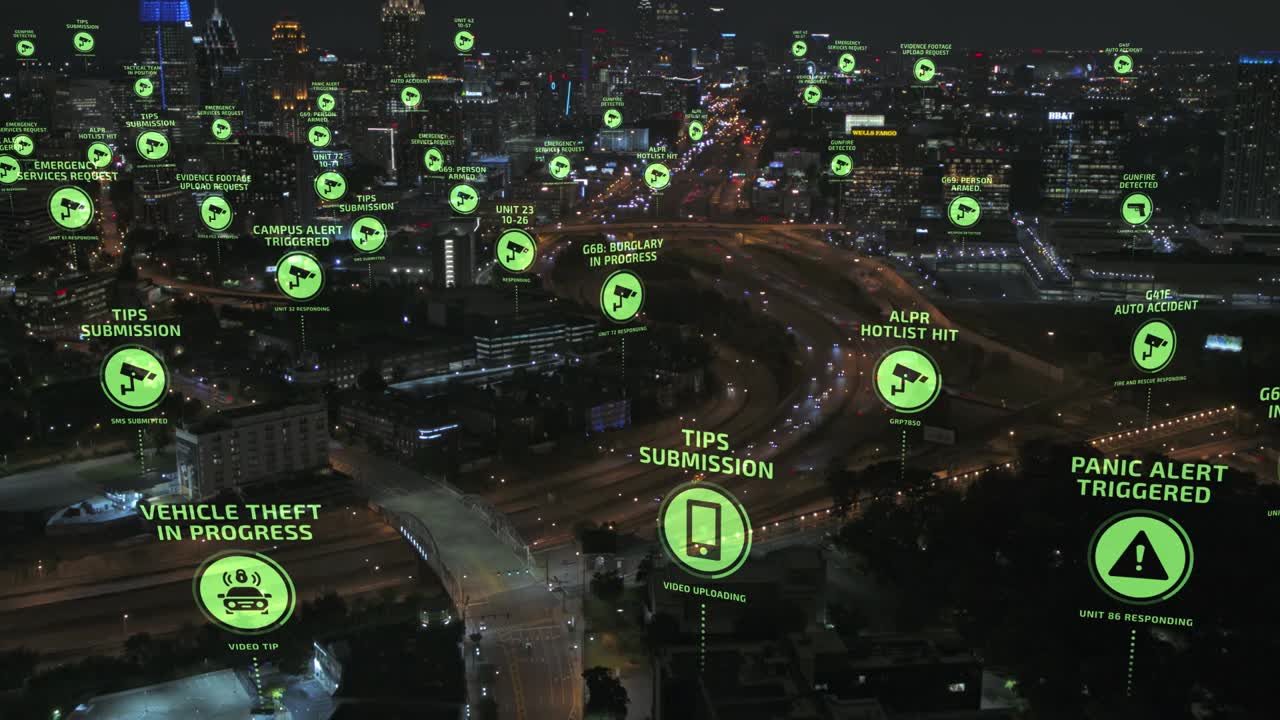
Meeting among local government, law enforcement, business interests and residents showcased how enhanced safety systems work.
With a perception that crimes such as car break-ins, burglary, and street takeovers are on the rise in the area, residents of Peachtree Corners met with local law enforcement agencies for a periodic overview of what’s being done to combat crime. Hosted by the United Peachtree Corners Civic Association, homeowners, business owners, government officials and interested parties met at Christ the King Lutheran Church for the update.
Perhaps the most impactful weapon against crime, besides the officers themselves, is technology.
“One of our responsibilities with the resources that we have is to do what we can to support Gwinnett County police as they fulfill that obligation for providing a safe community. And one of the ways that we’ve found we can do it is using technology as a force multiplier,” said Peachtree Corners City Manager Brian Johnson. “You’ve heard us talk in the past about using cameras to help the police department with the ability to collect data or use it to investigate or prosecute crime.”
The use of high-end technology began with license plate reader cameras that are in certain intersections of the city, he said. Currently, there are 50 that take a snapshot of license plates coming through those intersections.
“They have been used on a number of occasions to solve crimes and apprehend a number of people that have committed crimes here,” said Johnson.
He pointed out that the creation of the Town Center and the increased activity there is going to attract problems.
“You get knuckleheads who like to destroy property or get into altercations with people and so we are also … installing 68 video cameras at the Town Center,” Johnson said.
Those video cameras are for use by Gwinnett County for surveillance to ensure it remains a safe environment. Just having the cameras there won’t do much good without the technology to assist law enforcement in identifying threats.
RTC3 integrates systems for better public safety
Johnson explained that many businesses have their own video security systems and would be overjoyed to link them up with the local police. “We happen to be privileged and lucky to have a company here that actually has solved the way to do that,” said Johnson. “We have a corporate tenant of the city, a company called Fusus that is very much in keeping with the technology.”
Fusus is known in law enforcement and public safety circles for its leading-edge RealTime Crime Center In The Cloud (RTC3) platform. A 2020 member of Atlanta Inno’s “50 on Fire,” Fusus has been recognized as among the hottest new companies in the Atlanta area.
The company moved its headquarters to a larger office space in Peachtree Corners in 2020 due to rapidly increasing demand for its platform. The Fusus RTC3 platform’s video intelligence and map-based awareness interface serves as the central integration point for law enforcement agencies’ surveillance, security and life safety technology.
Fusus brings all personnel and emergency operations centers under a unified umbrella that aggregates video and data, and directly integrates with 911 Computer Aided Dispatch (CAD) systems, enabling agencies to geolocate officers and units in the field via the native fususOPS app, track calls for service and better coordinate their resources.
“I am a proud resident of Peachtree Corners and I intend to be for many more years,” said Chris Lindenau, CEO of Fusus. “One of the things I love about the city is that we are pulling a lot of innovation to it from around the Atlanta metropolitan area. And for those of us in the technology sector, this has always a been challenge.”
A graduate of Georgia Institute of Technology, Lindenau resisted the pull of San Francisco and Silicon Valley to stay right here and be a part of “Silicon Orchard.” He started Fusus in June 2019.
“The reason we started this company is that we saw a real gap in law enforcement and the ability to pull in disparate technology sets to make use of what was there,” said Lindenau. “We all understand camera technology. We understand radios, right? Law enforcement uses radios. We understand that they have vehicles, and they need to know where their officers are at any given time in those vehicles. We understand that they have 911 dispatch systems.” He explained that the challenge in law enforcement is putting all those different systems together.
Business community and police collaborate more easily
Fusus found success in April 2020 by testing the system in Minneapolis. The real-world need was stepped up a month later with the death of George Floyd at the hands of police.
“So the concept of just putting more law enforcement in the field was no longer viable,” said Lindenau. “We were born out of necessity to address an underlying issue that we knew was not just unique to Minneapolis, and that was that law enforcement needed new, novel ways to collaborate with the community. They could not go it alone. They needed their business community stakeholders to contribute back to that understanding of what was going on in the city.”
The intent of the program is to allow Gwinnett County Police to work more closely with the business community in sharing, among other things, video data. The collaboration will improve real-time response and enable law enforcement to have a clearer, quicker operational understanding of what’s going on in and around an issue. It will allow for things like graffiti on the bridge to not just be something that police respond to after the fact but perhaps deal with as it occurs. The program has already caught street racers in the midst of a “takeover” that resulted in multiple arrests.
The technology could also be a help in everyday issues like traffic jams. It doesn’t have to work only for situations under duress, said Lindenau.
“But ultimately, the goal is to allow the business community to get back into work in concert with their partners and law enforcement. One thing I want to emphasize is that this is a completely voluntary program, and the owners of these video sources have full control over the circumstances in which they’re shared. They can, through the flow switch, opt out of the program anytime,” Lindenau added.
“It’s very important to emphasize that we want to make sure that privacy is the bedrock foundation of everything we do, because I, as a fellow resident, don’t want to concede my privacy rights for public safety and security here in Peachtree Corners. That’s something I think we all share.”
The video streaming is set to begin in non-residential areas. Unlike video that’s shared on social media platforms like NextDoor, Facebook and Twitter, sharing with police is private. It won’t live forever on the internet. And its sole purpose is to resolve investigations more quickly.
The technology is active in about 110 cities across the country. Now, the city where it was developed will be part of that number.
Video below from the C.O.P.S. meeting and a video from FUSUS
Related
Arlinda Smith Broady is part of the Boomerang Generation of Blacks that moved back to the South after their ancestors moved North. With approximately three decades of journalism experience (she doesn't look it), she's worked in tiny, minority-based newsrooms to major metropolitans. At every endeavor she brings professionalism, passion, pluck, and the desire to spread the news to the people.

City Government
Southwest Gwinnett Mayors Share Visions for the Future
Published
4 days agoon
July 22, 2024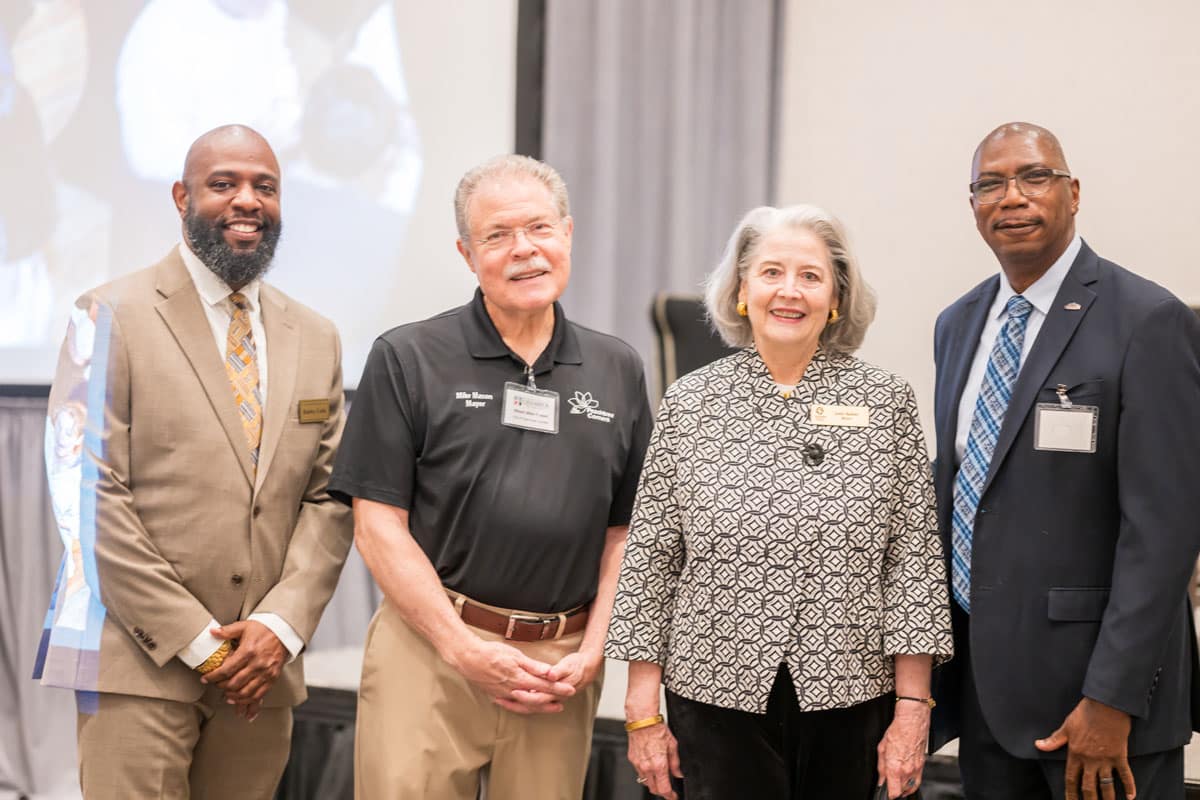
In what has now become tradition, the Southwest Gwinnett Chamber of Commerce hosted mayors from Berkeley Lake, Norcross and Peachtree Corners at a panel discussion on July 12 at the Hilton Atlanta Northeast.
The conversation centered around strategies for revitalizing and expanding metro Atlanta cities, with a focus on redevelopment, zoning ordinance reform, pedestrian and bicycle safety and investing in local schools and affordable housing initiatives.
Zoning changes
“We are beginning a really big project in our city. We have had ordinances that we’ve been working on ever since the city was incorporated in the 1950s,” said Berkeley Lake Mayor Lois Salter.
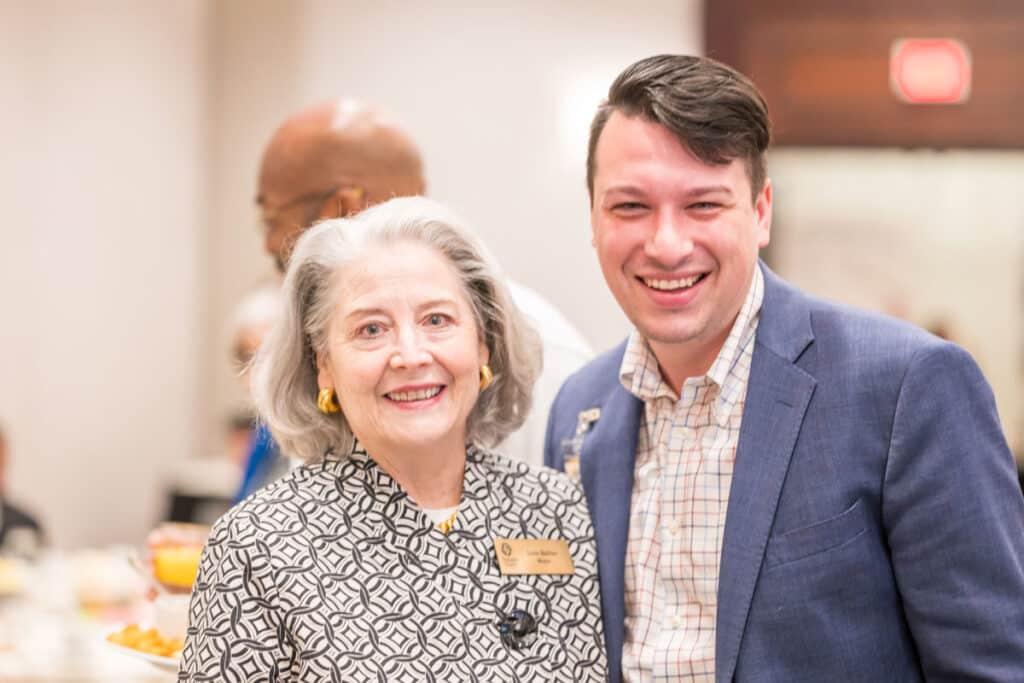
“We feel that we need to overhaul the whole zoning ordinance system and hire a consultant to come and elicit understanding and opinions from our citizens. We want them to be a part of that. We have some folks that resist any kind of regulation. They just want us to regulate their neighbors,” she added.
Norcross Mayor Craig Newton agreed that evolving needs are an important reason to change the zoning, and planning for what lies ahead is paramount. He pointed out that all Georgia cities must implement a comprehensive plan to maintain their qualified local government certifications and remain eligible for selected state funding.
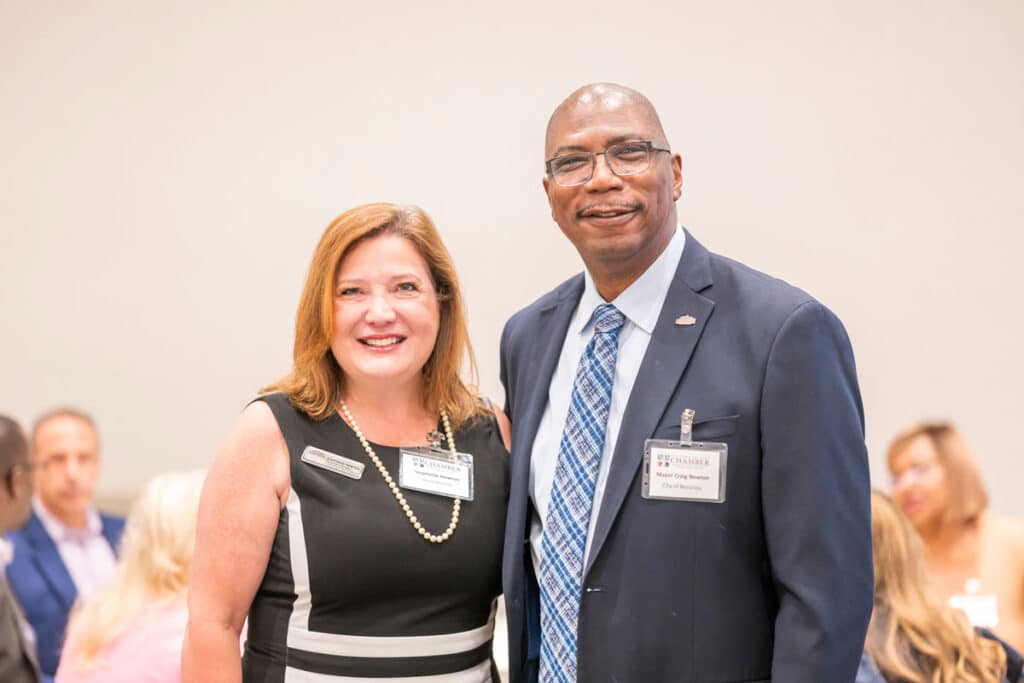
Land development
“We intend to focus on improving pedestrian bicycle safety downtown and establish a sidewalk activity improvement,” he said. “We’re also looking at approving parking in our town center and constructing the Norcross Greenway, which will bring a much-welcomed park, green space and a trail,” he added.
The county announced earlier this year that the project involves redeveloping the existing property into a park that will span almost two acres. It will offer various community spaces, including a multi-use trail, playground, covered picnic area, restroom building and a 41-space parking lot.
In addition to its amenities, a 12-foot-wide concrete trail segment will wind through the park and utility corridor, connecting Singleton Road to Dickens Road.
The trail is part of the 2018 Gwinnett Trails Countywide Trails Master Plan‘s Norcross to Lilburn Trail with an internal loop trail connecting to the neighborhood.
Commercial use
Peachtree Corners has had several “community-friendly” projects come online in the past year, but the effects of the pandemic continue to linger.
“When you think about the future, you’re thinking about the landmass and buildings and commerce. Probably the most significant issue facing a lot of us in the near term is modern office space,” said Peachtree Corners Mayor Mike Mason. “There’s a lot of space. The question is, are people going to come back?”
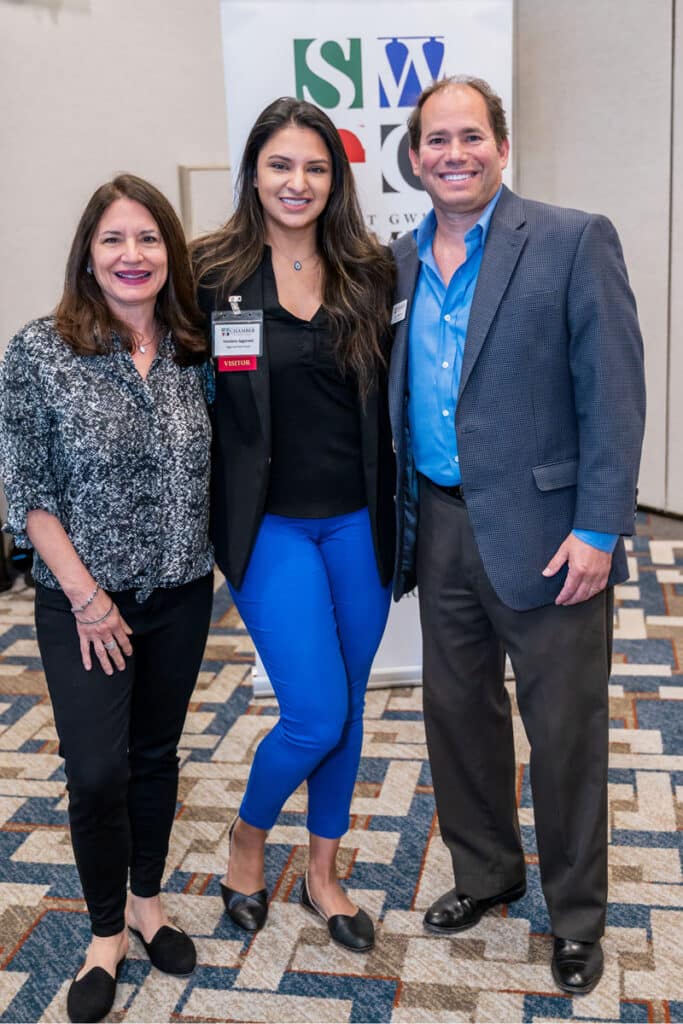
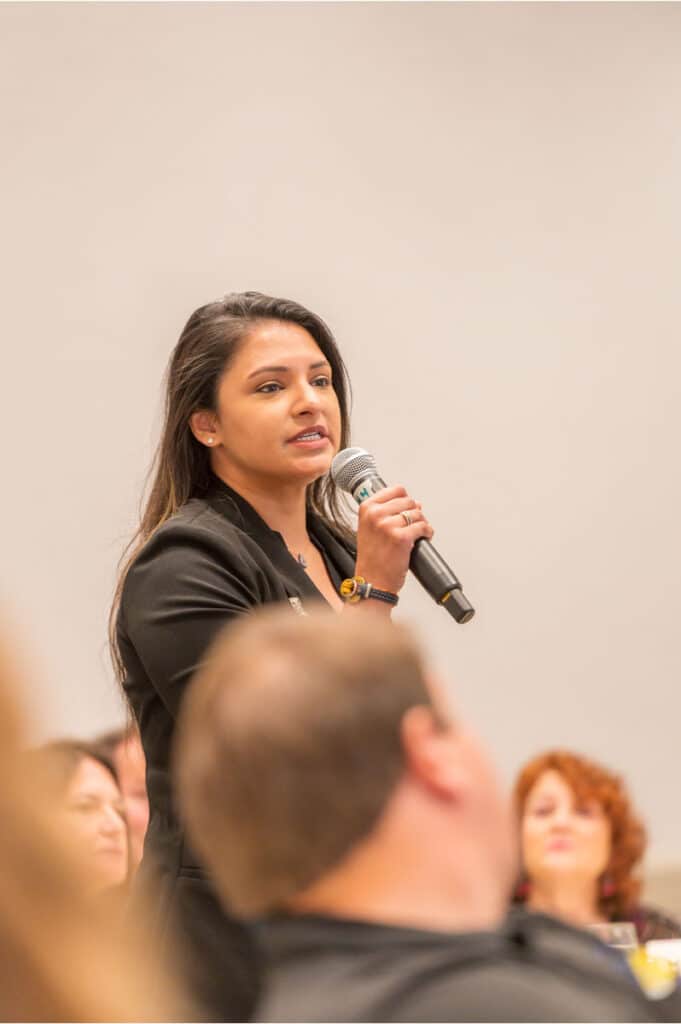
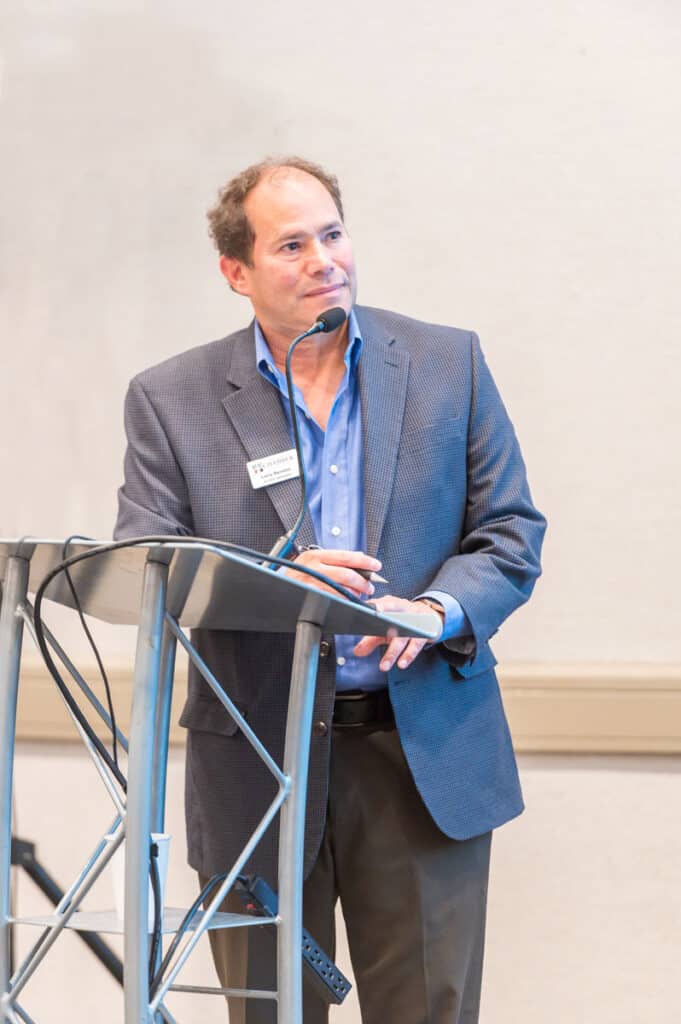
He said that the central retail area has shifted with the revitalization of The Forum and that’s making city leaders rethink city planning.
“We’re having a look at our code and things like that. But from another point of view that will drive the decision about what communities are going to look like,” he said. “For example, there are people coming into the city that say some buildings are technologically obsolete.”
Public safety
Even though Berkeley Lake is the smallest of the three cities and has the highest average home values, all the mayors agreed that public safety is a growing concern.
“Living in Norcross offers residents a dense suburban feel that’s somewhat rural compared to the city of Atlanta,” said Newton. “But some of our public safety initiatives are increasing police presence in high crime areas.”
As the only one of the three cities with a full police department, Norcross is seeking creative ways to implement effective community policing strategies to build trust and communication between law enforcement and the residents.
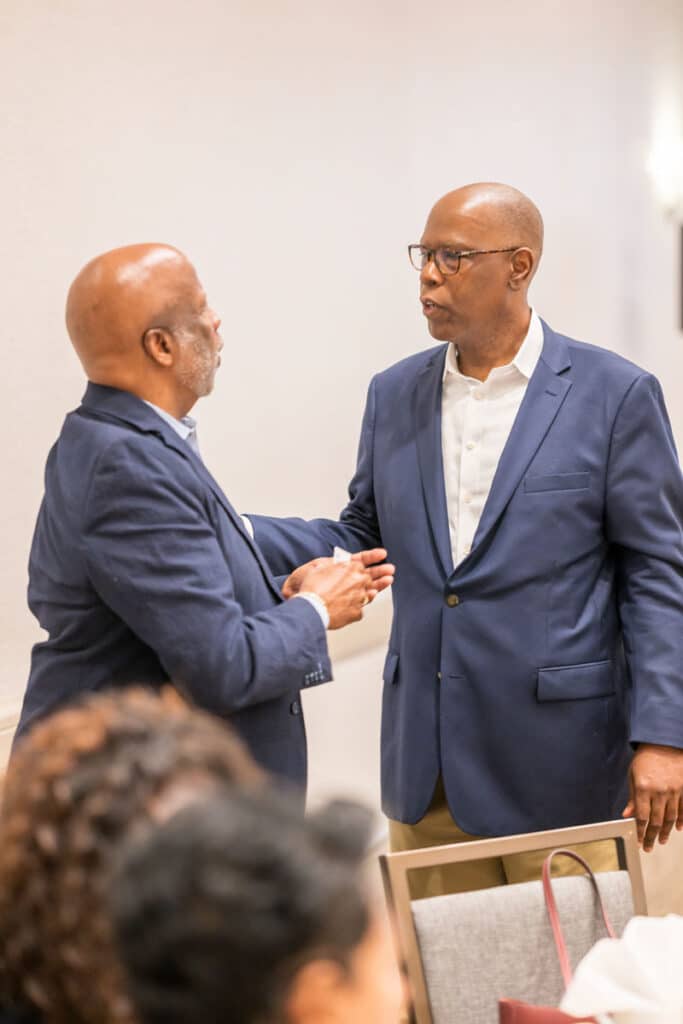
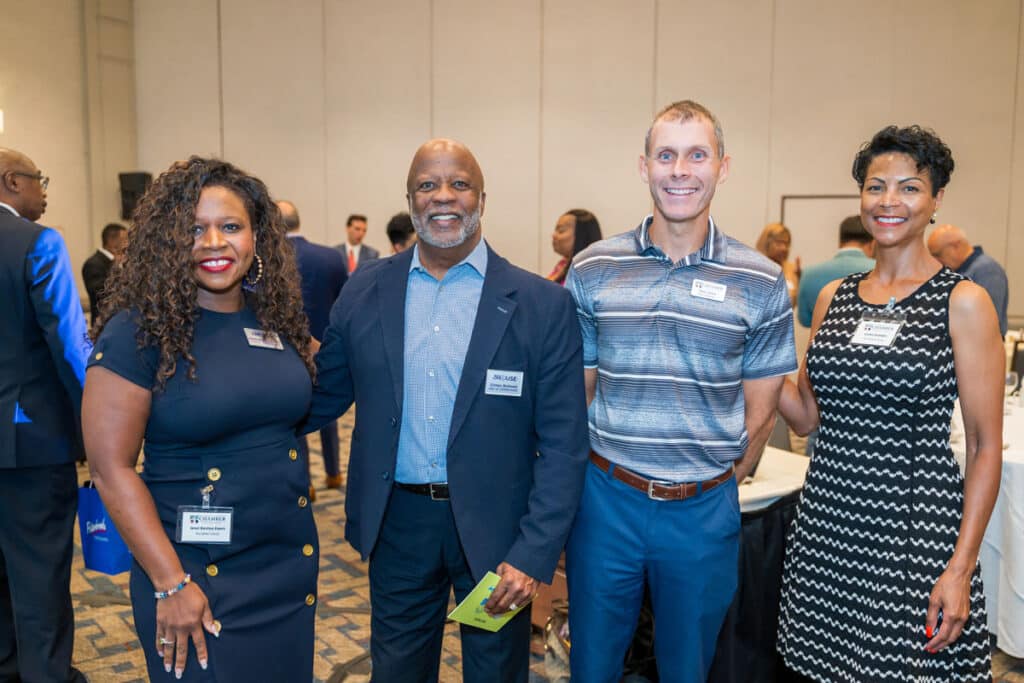
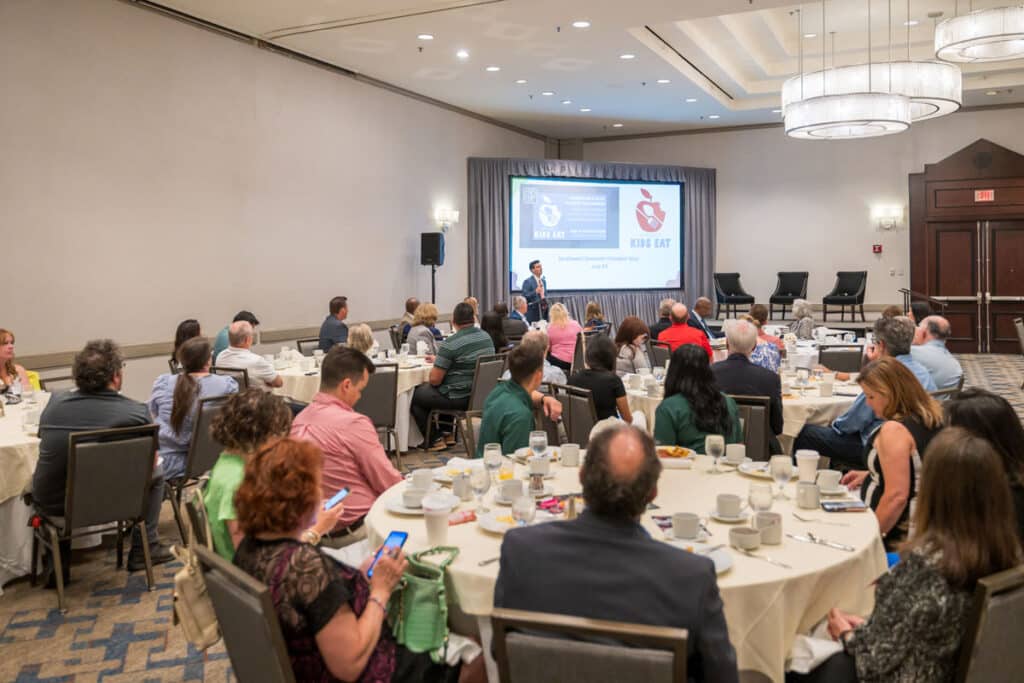
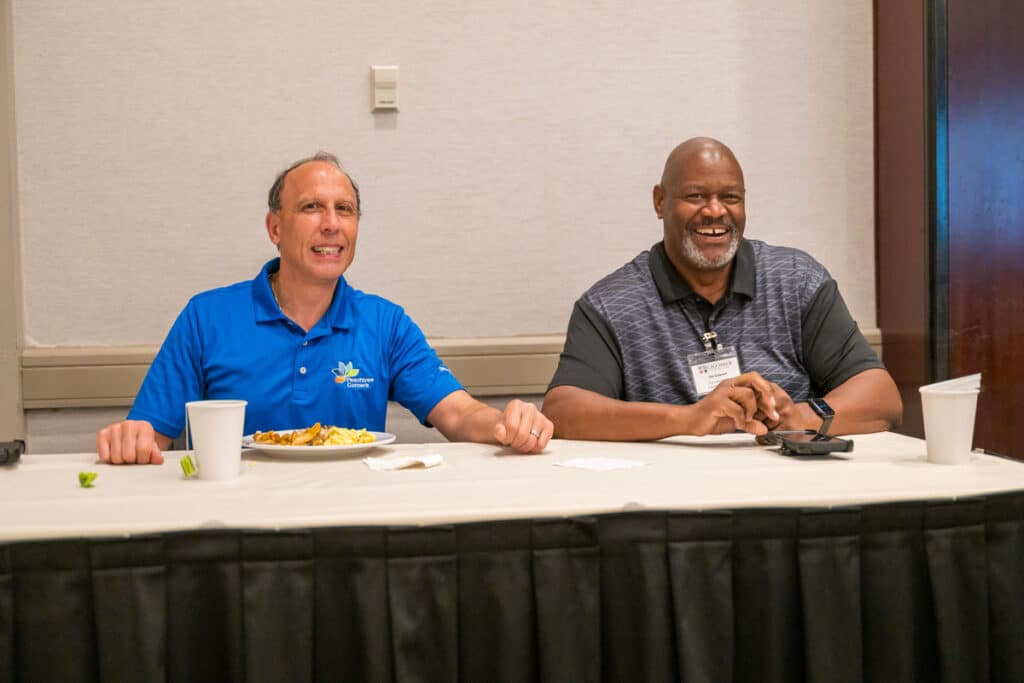
Newton mentioned programs such as Neighborhood Watch, youth outreach programs and educational initiatives along with enhancing emergency response capabilities with training for the local fire department and EMS services.
“Our response time goal is for an officer to be on-site in an emergency within 30 minutes,” he said. “But that doesn’t happen.”
Extended-stay hotels tend to attract crime, so Newton said the city has worked with owners to improve lighting in the public spaces to deter criminal activity.
“We’ve partnered with nonprofit businesses and local stakeholders to support social services employment opportunities for at-risk individuals,” he said. “By working together with various organizations and entities were able to address the complex challenge of public safety.”
Community accountability
With no police force, Berkeley Lake relies heavily on cameras and old-fashioned “knowing your neighbors,” said Salter.
“Some of our individual HOAs are buying and furnishing and paying for cameras to safeguard their neighborhoods,” she said.
Although there may be pockets of criminal behavior around the city, Salter said a police officer once described Berkeley Lake as a “black hole” of crime because there’s so little crime data.
“One of the reasons for that we feel is that historically we’ve been a very neighborly people,” she said. “There is an amazing system of community cohesiveness.”
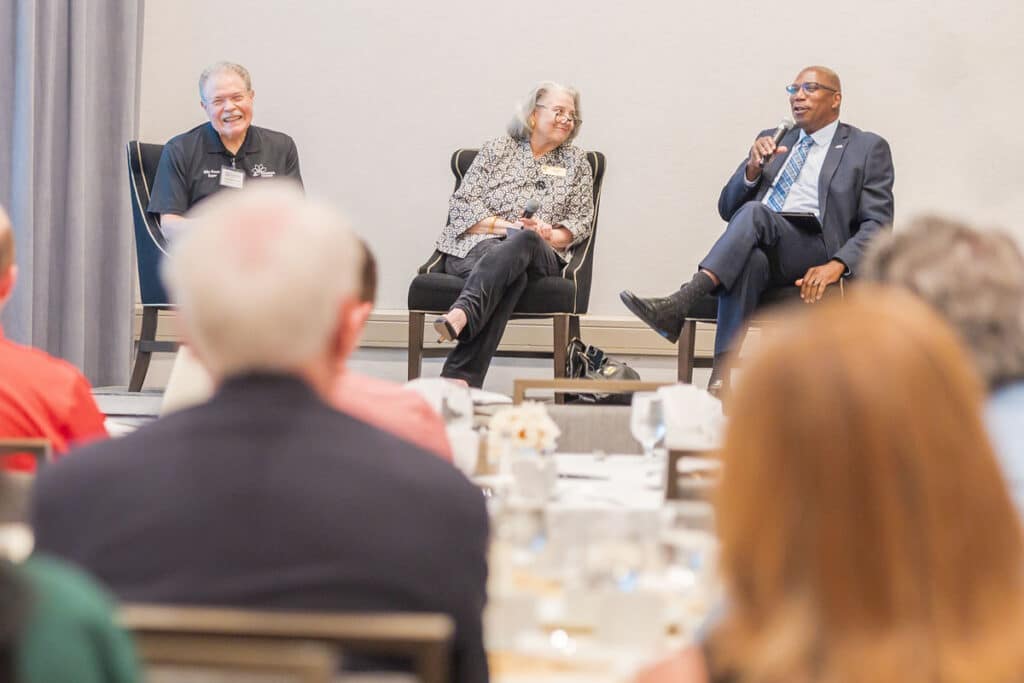
Peachtree Corners is taking its own approach.
“We’ve recently added a Marshal Service and as Lois mentioned we’re also leaning on technology,” said Mason.
The marshal department doesn’t take the place of the services provided by Gwinnett County Police, it primarily enforces city code and aids Gwinnett PD when necessary.
“We’re utilizing as much technology as we can,” said Mason.
Gwinnett PD is instructing where to locate cameras and the city keeps adding them. There have been several instances in the last year or so where coordination among agencies and the use of technology have thwarted or caught criminals.
At the end of the day, the three mayors said the cities all rely on each other. Being so close means that economic development, enhanced entertainment and other desirable amenities are boons for them all.
Related
City Government
Planning and Development is Changing in Peachtree Corners
Published
2 months agoon
June 6, 2024
From Peachtree Corners Mayor Mike Mason’s monthly column.
After the COVID-19 pandemic, the city noticed a development trend that focused on the importance of social interaction. It began seeing development applications for indoor pickleball, virtual racing, garden clubs, car clubs and other recreational uses.
When our city was established in 2012, it adopted Gwinnett County’s codes and ordinances to maintain consistency and these new social interaction-focused uses were not initially considered in the city’s current Comp Plan or zoning code.
Working from home is another market trend having a big impact on local office parks. This economic engine is driven by office parks such as Technology Park and there’s always been a priority placed on preserving office stock.
Even though the commercial office market is waning right now, that pendulum is still trying to figure out where it will settle in. Most of these new socially focused uses find the best home in an office setting.
Due to the increasing number of these applications and the evolving market trends, the city has imposed a six-month moratorium on projects in the Central Business District character area. The moratorium came into effect on May 3 and will end on November 3.
This halt will allow the city six months to pause rezoning applications, special use permits and variances applications for residential or mixed-use development. It will help the city maintain the status quo, stop new applications from coming in and allow for officials to consult with experts and delve deeper into the code and comprehensive plans.
The city plans to conduct extensive research, analysis and strategic planning during this period to help determine if any changes should be made to the comprehensive plan and zoning regulations.
For instance, it might be beneficial to designate downtown as a distinct character area separate from the central business district. Implementing new zoning regulations to transform it into an entertainment district or a unique downtown character area could be a viable option. Many cities have already adopted this type of zoning.
Office parks and businesses throughout the city provide a balance of jobs and residents that allow the city to be the second largest in the state with a zero-millage rate or no city property tax.
Therefore, as part of this process the city will research ways it can preserve, stabilize and enhance the economic engine through the activation of underutilized spaces within office parks.
This proactive approach will help maintain the job-to-resident balance that allows the zero-millage rate while positioning the city for success as the office market pendulum settles.
The most important thing this moratorium does is allow the city to consider what will work best for Peachtree Corners. Furthermore, it communicates to developers that the city requires a pause because current zoning regulations and comprehensive plan do not adequately address future goals.
Related
City Government
Peachtree Corners Welcomes New Community Development Director
Published
2 months agoon
June 2, 2024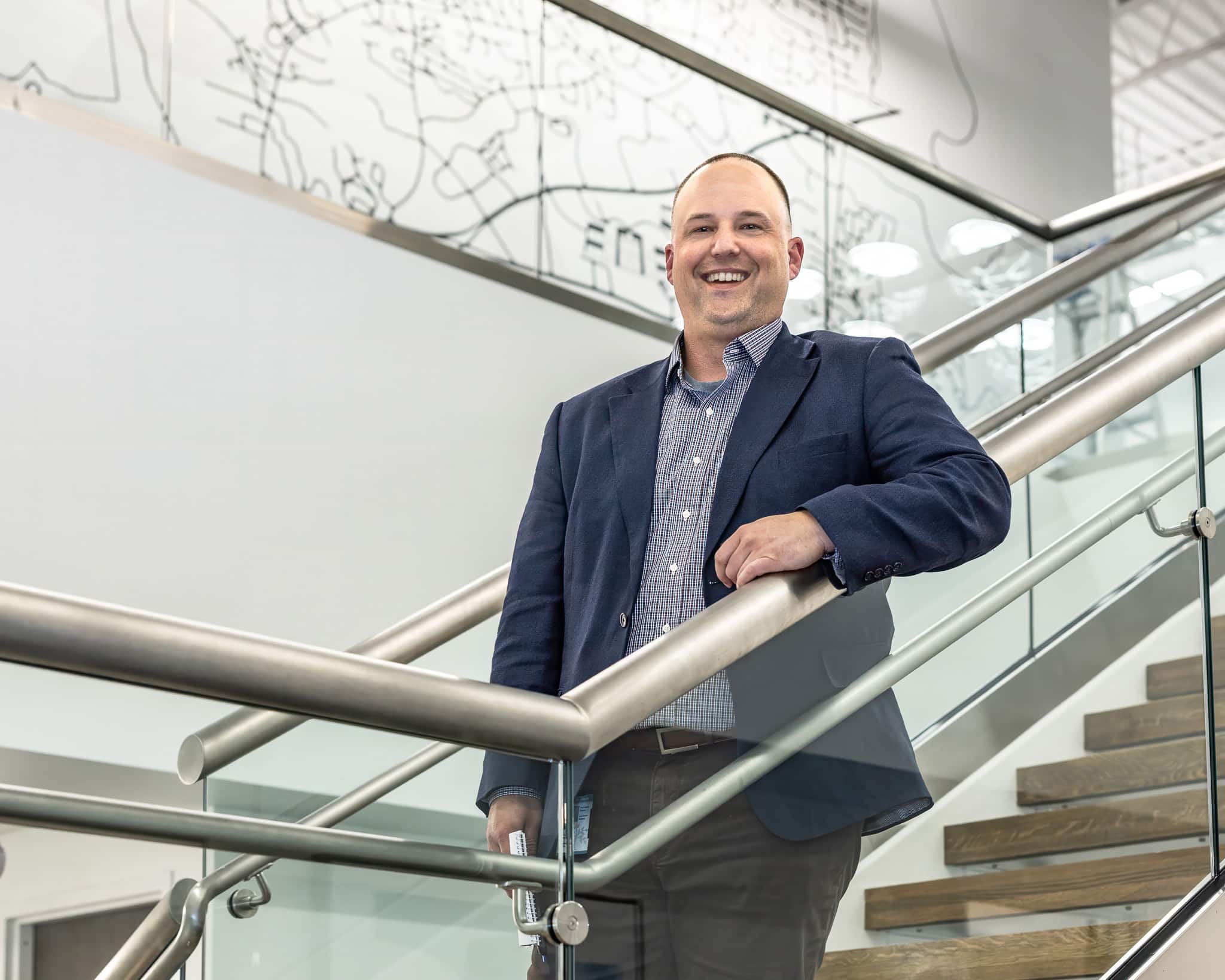
With community development director Diana Wheeler stepping down to pursue a consulting career, Peachtree Corners city leadership turned a challenge into an opportunity.
In January, Shaun Adams was hired as the assistant city attorney to oversee compliance for land use and economic development-related matters and help with legal issues.
His background in public and private sector development made him the ideal replacement.
As luck would have it, Adams moved to Georgia in 2005, selling real estate while attending law school.
“I actually started working down at the capital a lot, lobbying on various policies right out of law school,” he said. “I was the legal counsel for the Senate Judiciary, and that exposed me to ACCG, which is the State County Association, which represents all staff and elected officials for counties across the state.”
With the motto, Advancing Georgia’s Counties, ACCG helps with the policy aspect of things like training and education.
“While I was a lobbyist for them, I focused on economic development, infrastructure-related issues and whatever policies went into place,” Adams said. “We also went around the state and trained our commissioners and their staff on some of those policies and put their new processes in place.”
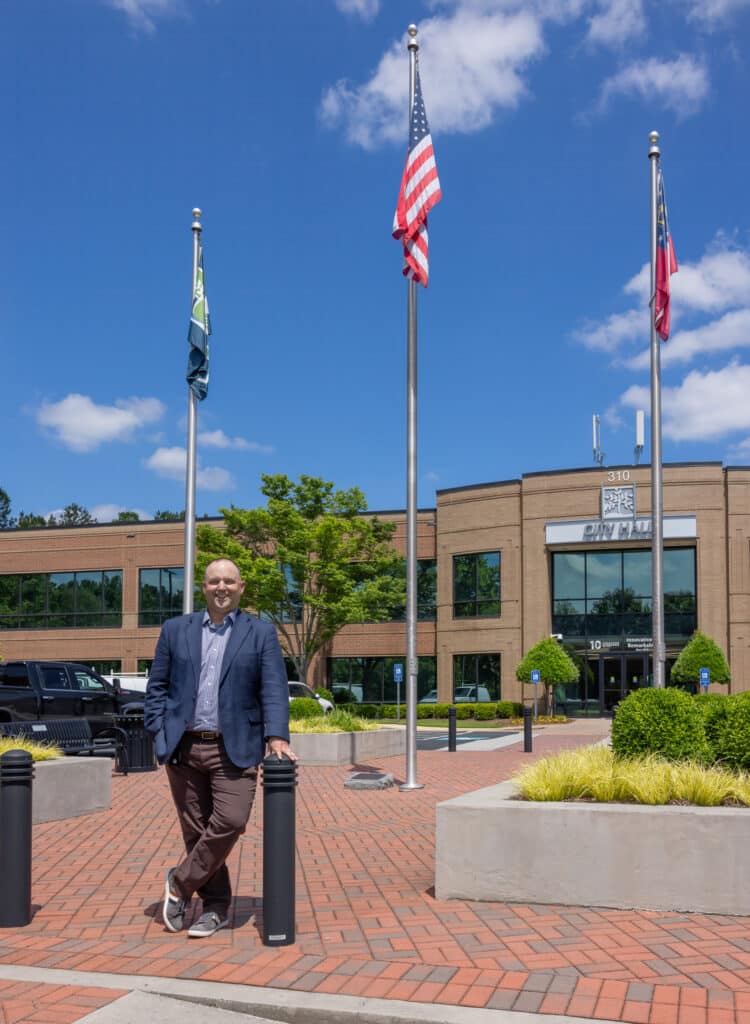
Local government possibilities
“After a handful of years, I got lured away into the private sector,” he said.
Working on land use and government relations matters from the other side of the table, Adams represented developers and investors.
“Sometimes [investors would] come to me with a property that they bought, and they’d say, ‘Hey, we bought this on investment. We’d like to see how we can make the highest and best use of it. Help us create a vision,’” he said. “So, I helped put a team together to determine what we thought could go on the site based off of local government zoning.”
His job entailed working with architects and engineers to design the site and help the client take it to market. Ultimately, the contract purchaser would come in and seek needed entitlements.
“I would help with that,” Adams said. “Those were the fun ones because you got to start on the ground.”
Adams got to know many different local government jurisdictions and worked extensively around metro Atlanta on various matters. On a busy week, he may work with five different jurisdictions across the state.
As a family man with a wife and two sons, he began looking for something that would keep him closer to home.
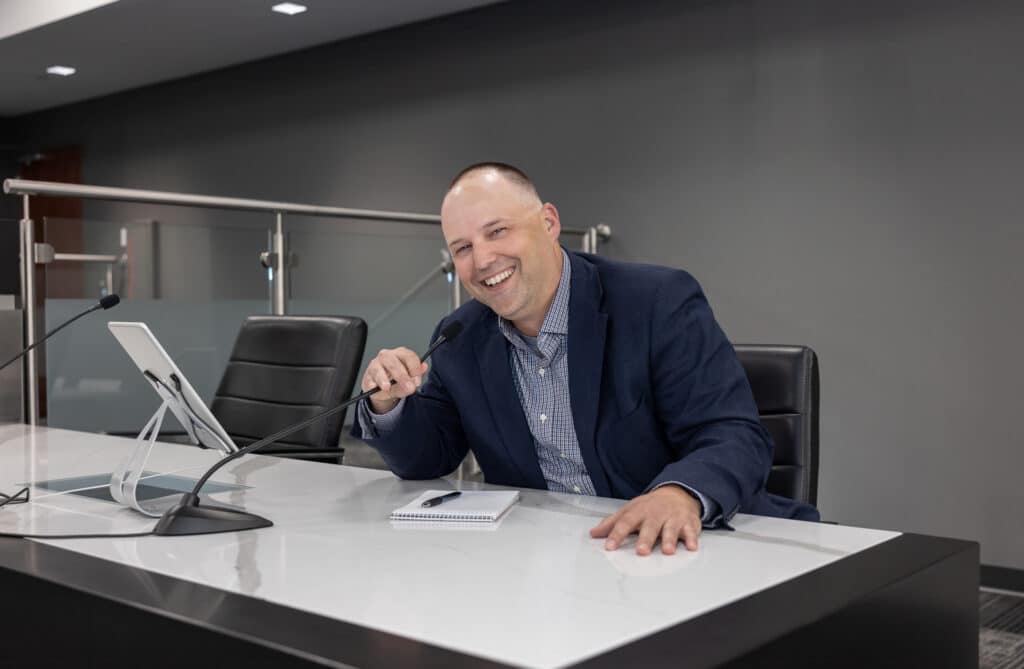
A perfect fit
City Manager Brian Johnson says it was serendipitous that Adams was looking for a position at a time when the city needed someone like him.
“It’s actually a hard position to fill, and I just happened to catch him,” said Johnson. “We were familiar with each other because he’s represented a number of clients coming before the city.”
Johnson said that Adams was legal counsel for some of the most significant developments in the last few years: North American Properties purchasing and revitalizing The Forum, housing development Waterside, and Intuitive Surgical moving its headquarters from the West Coast.
“He was on the other side of the table as we worked together to make these projects ultimately better for the city and better than they were upon their initial submittal,” Johnson said.
“And I knew then that he was a really knowledgeable guy that really knows how to deal with people. He’s a problem solver. He’s always looking for ways to figure out how to resolve conflict and navigate minefields as it relates to land use and all the laws and zoning that apply to it,” he added.
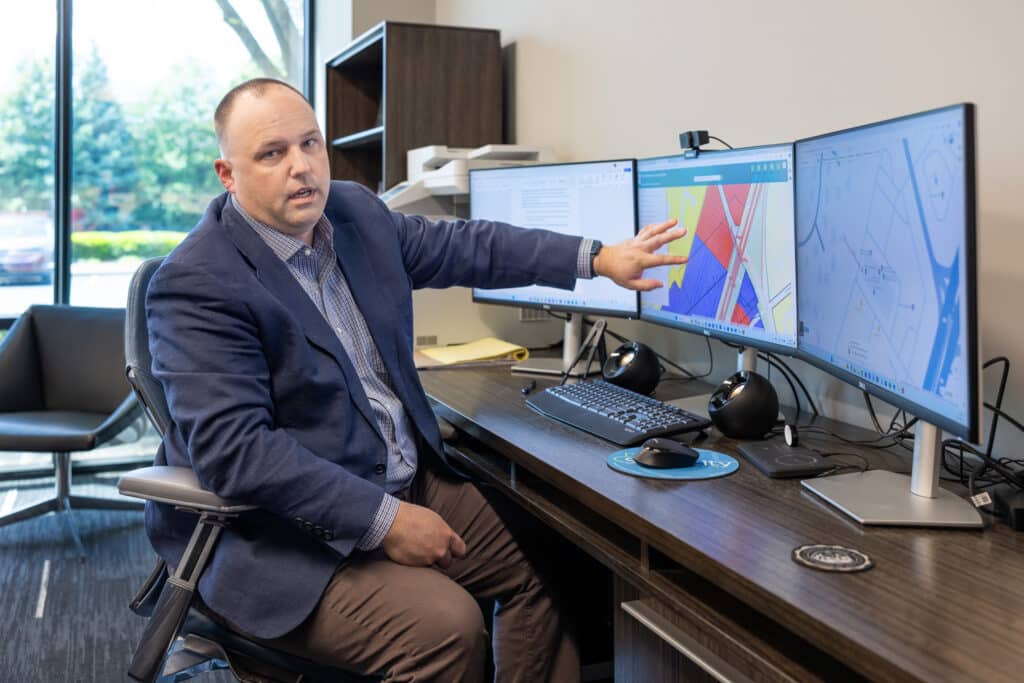
Changes to the job
Although Wheeler is no longer a staffer, she’s still doing work for the city.
With Adams’ legal background, the events planning team will be transitioning out from under community development.
“By taking that off my plate, it’ll allow me to do more with the legal side of things that the position didn’t do previously,” he said.
There will also be a shift with code enforcement duties moving under Chief Marshal Edward Restrepo.
“I moved code enforcement underneath the city marshal’s office because code enforcement and law enforcement are almost like fraternal twins — they both do very similar things,” said Johnson. “Each of them is enforcing a different level of law. Code enforcement is municipal code, and law enforcement is state code, but they work hand in hand.”
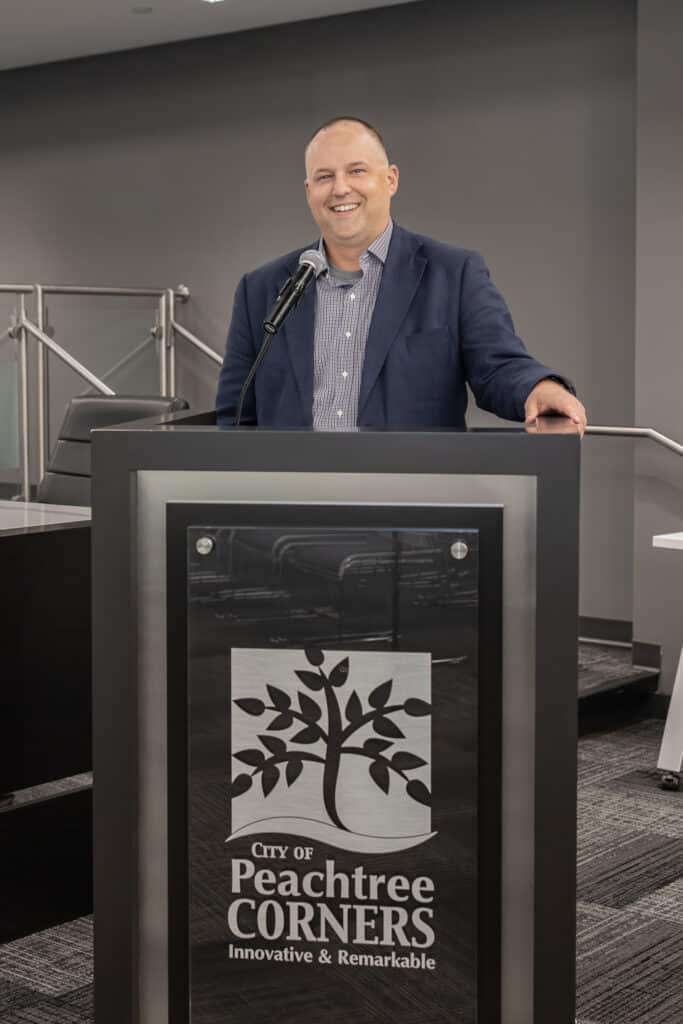
The events planning through the end of the year has already been moved from the community development director’s department. As a consultant, Wheeler will work with other contractors to manage the happenings at the Town Center. Director of Communications Louis Svehla has already moved into managing premier events, Johnson said adding that the city may use more consultants in the future under Svehla’s management.
“He has really shown his ability to manage special events very adeptly. He really showed me that skill set when we had last year’s Criterium bike race,” said Johnson. “I decided to take advantage of some opportunities, including our partnership with Audi, which we were going to announce to the whole vulnerable road user thing.”
With only three months to prepare, Svehla pulled off the event without a hitch.
“He did an outstanding job and so he is capable of taking the management of our community events, our concerts and stuff,” said Johnson.
Johnson said the city is still utilizing consultants for some aspects of special events, but if consultant fees become more expensive than hiring someone full-time to assist Svehla, he’ll make that call.
“All those moves have happened, and I’ll sum it up by just saying that I’m just playing to the strengths of these people and utilizing a great team that I have, and it’s working out really well,” Johnson said.
Related
Read the Digital Edition
Subscribe
Keep Up With Peachtree Corners News
Join our mailing list to receive the latest news and updates from our team.
You have Successfully Subscribed!

What’s going on at Jones Bridge Park and the Challenges of Urban Development

Taste of Peachtree Corners: PCBA Showcases Local Restaurants

The Forum Gives Sneak Peek of New Eateries and Community Spaces

Southwest Gwinnett Mayors Share Visions for the Future

8 Events Happening In and Around Peachtree Corners This August

Peachtree Corners Shines Bright with Light Up the Corners Glow Race this August

Peachtree Corners Shines Bright with Light Up the Corners Glow Race this August

The Forum Gives Sneak Peek of New Eateries and Community Spaces

8 Events Happening In and Around Peachtree Corners This August

Southwest Gwinnett Mayors Share Visions for the Future

Taste of Peachtree Corners: PCBA Showcases Local Restaurants

What’s going on at Jones Bridge Park and the Challenges of Urban Development

Local Resident Opens AtWork Location in Peachtree Corners

CHRIS 180 Expands its Services into Gwinnett County [Podcast]

Light up the Corners [Video]

Capitalist Sage: Business Leadership in Your Community [Podcast]

Cliff Bramble: A Culinary Adventure through Italy

Top 10 Brunch Places in Gwinnett County

A Hunger for Hospitality

THE CORNERS EPISODE 3 – BLAXICAN PART 1

Top 10 Indoor Things To Do This Winter

The ED Hour: What it takes to Remove Barriers from Education
Peachtree Corners Life
Topics and Categories
Trending
-
Business1 week ago
Taste of Peachtree Corners: PCBA Showcases Local Restaurants
-
Business2 days ago
The Forum Gives Sneak Peek of New Eateries and Community Spaces
-
City Government4 days ago
Southwest Gwinnett Mayors Share Visions for the Future
-
Around Atlanta4 days ago
8 Events Happening In and Around Peachtree Corners This August






